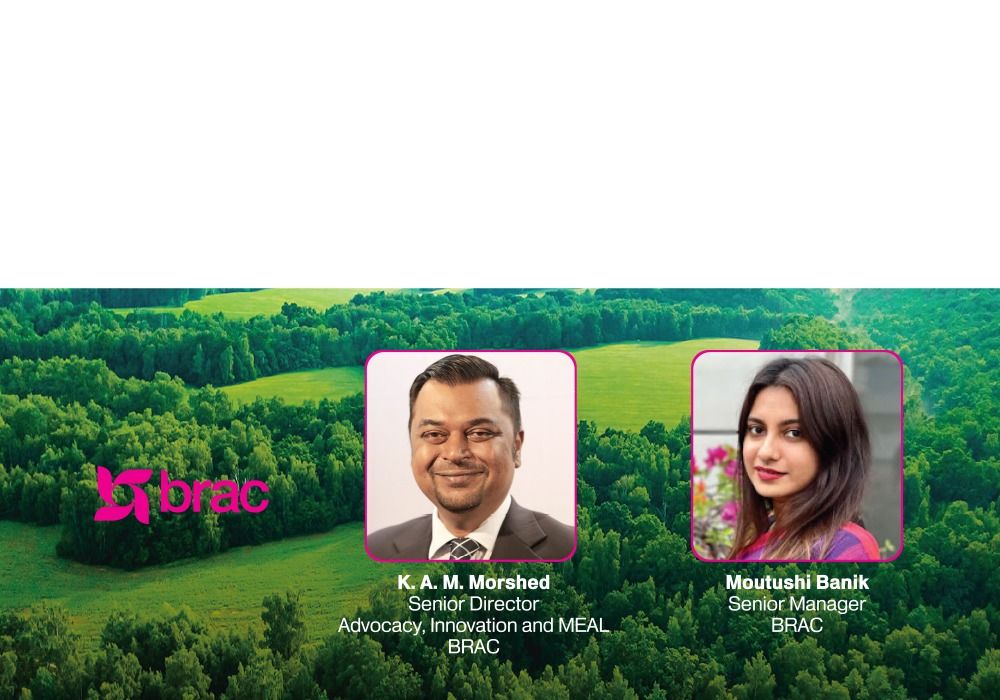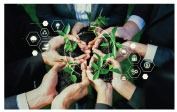- info@ficci.org.bd
- |
- +880248814801, +880248814802
- Contact Us
- |
- Become a Member
- |
- |
- |
- |
- |

| Key Takeaways: 1. Sustainability as Strategy, Not Side Project: Businesses that integrate SDG goals into their growth strategies gain access to new markets, stronger reputations, and resilient operations. 2. Partnerships and Coalitions Drive Scale: Alliances across sectors-from finance to civil society-amplify scale, innovation, and system change. 3. Transition Periods Are Windows, Not Risks: LDC graduation and tightening global norms should catalyze reform, not create hesitation. |
Bangladesh's Next Frontier: Competing Through Sustainability
Bangladesh is set to graduate from Least Developed Country (LDC) status in 2026. This isn't just a policy change-it's a major moment for investors and businesses. For years, our industries, especially ready-made garments (RMG), benefited from special trade deals. But those benefits are ending. Now, Bangladesh must compete in global markets where sustainability-not just low prices-will decide who succeeds.
A Global Wake-Up Call
The global context is sobering. The United Nations' 2024 SDG Report shows that fewer than one in five targets are on track, with Asia and the Pacific projected to miss the 2030 deadline by decades. Yet the same report underscores that private-sector engagement is indispensable to accelerate delivery. Business-aligned analyses reinforce this: the Business & Sustainable Development Commission estimates that achieving the SDGs could unlock at least US$12 trillion in new opportunities and create 380 million jobs worldwide by 2030. Why It Matters for Bangladesh
For Bangladesh, the stakes are immediate. The RMG sector, which accounts for more than 80 per cent of export earnings and over US$45 billion annually, is highly exposed to compliance and reputational risks. International buyers are no longer satisfied with low-cost production; they demand verifiable sustainability credentials, from labour standards to emissions reporting. At the same time, domestic digital platforms such as bKash, with its vast agent network and tens of millions of users, show how technology-driven business models can scale inclusion and create new markets. Aligning these business lines with SDG outcomes reduces risk, attracts ESG-aware capital, and often improves operating economics, for example, by lowering energy and input costs.
 Lessons from the Region
Lessons from the Region
Across the Asia-Pacific, examples abound of how sustainability integration drives competitiveness. Walmart's Project Gigaton has mobilised suppliers in China and across the region to cut emissions, with reductions measured in millions of tonnes of CO2 equivalent. IKEA's Better Cotton programme has reworked supply chains in South Asia, training farmers to improve yields and environmental performance so that sustainable cotton becomes a bankable input for exporters. In the Philippines, AC Energy's green bond, anchored by IFC, has financed utility-scale renewables and demonstrated how cross-border capital can accelerate energy transitions.
Bangladesh's Own Pioneers
Bangladesh is not without its own pioneers. DBL Group has invested heavily in green manufacturing, setting benchmarks for resource efficiency in the textile sector. Solaric and Rahimafrooz have extended renewable power to off-grid communities, showing how clean energy can be both commercially viable and socially transformative. Unilever Bangladesh has emerged as a flagship example of how multinational firms can embed sustainability into local operations. Its Kalurghat factory has maintained a zero-waste-to-landfill record since 2014 and achieved 100 per cent renewable energy certification in 2021. The company's "Sustainability Blue Book 2024" details progress across climate, nature, plastic, and livelihoods, including conserving billions of litres of water, reducing plastic waste, and supporting waste workers' livelihoods in Chattogram. These initiatives are not peripheral -they are central to how Unilever competes and grows in Bangladesh.
The Power of Partnership
The lesson is clear: when international capital and local enterprise align, technology transfer, supplier upskilling, and measurable SDG-linked outcomes follow. Research shows that foreign direct investment delivers productivity and sustainability spillovers when local firms are ready to absorb them.
This is why partnerships matter. The Bangladesh Sustainability Alliance (BSA), launched in 2023 by BRAC, Unilever, Pran-RFL, Standard Chartered, BPCL, Marico, PepsiCo, and Intercontinental Bangladesh, represents a next-generation platform for systemic change. BSA unites business, development, and financial leaders around a shared agenda: advancing the circular economy, reducing plastic waste, and promoting responsible resource use. By linking supply chains, municipal systems, and financing partners, it turns sustainability commitments into coordinated action.
Institutions like FICCI, which bring together foreign investors and business leaders, are well placed to amplify such models-helping global capital connect with local innovation and ensuring sustainability becomes a shared business standard.
 From Intent to Instruments
From Intent to Instruments
The path forward for Bangladesh is straightforward. Sustainability must be made operational at the board level, with SDG-linked key performance indicators embedded in investment approvals and executive score- cards. First movers need to be de-risked through pooled due diligence platforms, blended-finance facilities, and investor-backed pipelines that can convert pilots into bankable projects. Policy signals must be predictable and pragmatic: time-bound fiscal incentives for verified green outcomes, fast-track permits for renewable and green-park projects, and transparent dispute-resolution systems that lower transaction costs. Disclosure, too, must be treated as market access. Credible, consistent sustainability reporting is now a passport to ESG capital and to buyers who value verified performance.
The Competitive Edge
The commercial upside is significant. Sustainable, inclusion-focused assets tend to generate more stable cash flows, attract a broader set of buyers, and command higher valuation multiples. For the private sector, the choice is pragmatic rather than ideological: treat SDG alignment as an incremental compliance cost and face rising non-price barriers, or integrate SDGs into strategy and capture a durable competitive advantage as markets reprice risk and reward.
Ready to Lead
Bangladesh already has the building blocks: a strong export base, digital platforms, pioneering firms, and multinational leaders embedding sustainability. The policy levers are within reach. What is needed now is decisive private-sector leadership-moving from intent to instruments, from pilots to scale.
Sustainability is not an abstract ideal. It is a smart investment strategy that protects current businesses, attracts new ones, and builds lasting national prosperity. As Bangladesh rises to this challenge, FICCI can play a catalytic role in guiding foreign investors toward strategies that deliver both profit and purpose.
Bangladesh's next challenge will not be about price-it will be about sustainability. And with the right partnerships, we are ready to lead.





